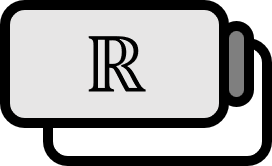The Relationship Between the Size of Integrals Based on the Order of Functions
This article is based on Riemann-Stieltjes integration. If we set it as $\alpha=\alpha (x)=x$, it is the same as Riemann integration.
Theorem1
Let us assume that two functions $f_{1}, f_{2}$ are Riemann(-Stieltjes) integrable over the interval $[a,b]$. Also, assume that $f_{1} \le f_{2}$ in $[a,b]$. Then, the following inequality holds.
$$ \int_{a}^{b}f_{1}d\alpha \le \int_{a}^{b}f_{2}d\alpha $$
Proof
Let there be a positive $\varepsilon >0$. Since $f_{2}$ is integrable, by the necessary and sufficient condition necessary and sufficient condition, there exists a partition $P=\left\{ a=x_{0},\cdots,x_{n}=b \right\}$ of $[a,b]$ that satisfies the following equation.
$$ U(P,f_{2},\alpha) - L(P,f_{2},\alpha) < \varepsilon $$
Since $f_{1}\le f_{2}$ in the interval $[a,b]$, by the definition of upper sum, the following equation holds.
$$ \begin{equation} U(P,f_{1},\alpha) \le U(P,f_{2},\alpha) \label{eq1} \end{equation} $$
Moreover, by the definition of integration, the following inequality holds.
$$ \begin{equation} \int_{a}^{b}f_{1}d\alpha \le U(P,f_{1},\alpha) \tag{2} \label{eq2} \end{equation} $$
Also, the following equation holds.
$$ \begin{equation} U(P,f_{2},\alpha) < \int_{a}^{b}f_{2}d\alpha +\varepsilon \label{eq3} \end{equation} $$
Now, by synthesizing $\eqref{eq1}, \eqref{eq2}, \eqref{eq3}$, we obtain the following equation.
$$ \int_{a}^{b}f_{1}d\alpha < \int_{a}^{b}f_{2}d\alpha +\varepsilon $$
Since $\varepsilon$ is any positive number, the following holds.
$$ \int_{a}^{b}f_{1}d\alpha \le \int_{a}^{b}f_{2}d\alpha $$
■
Walter Rudin, Principles of Mathematical Analysis (3rd Edition, 1976), p128 ↩︎
